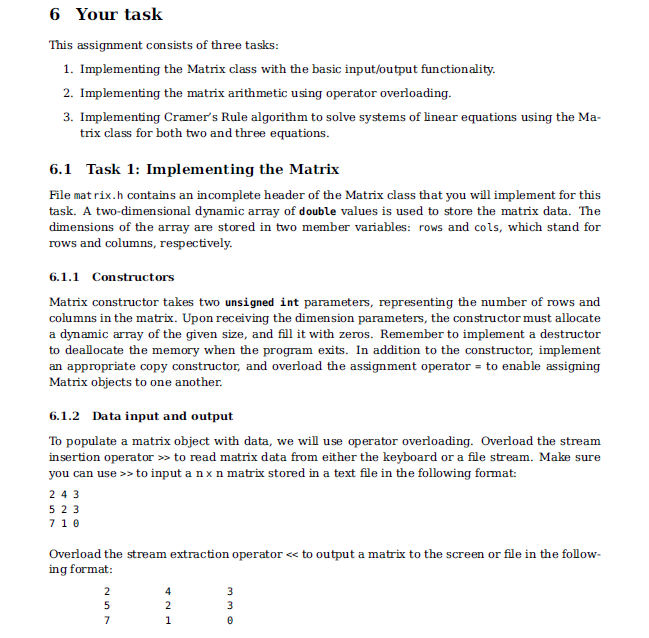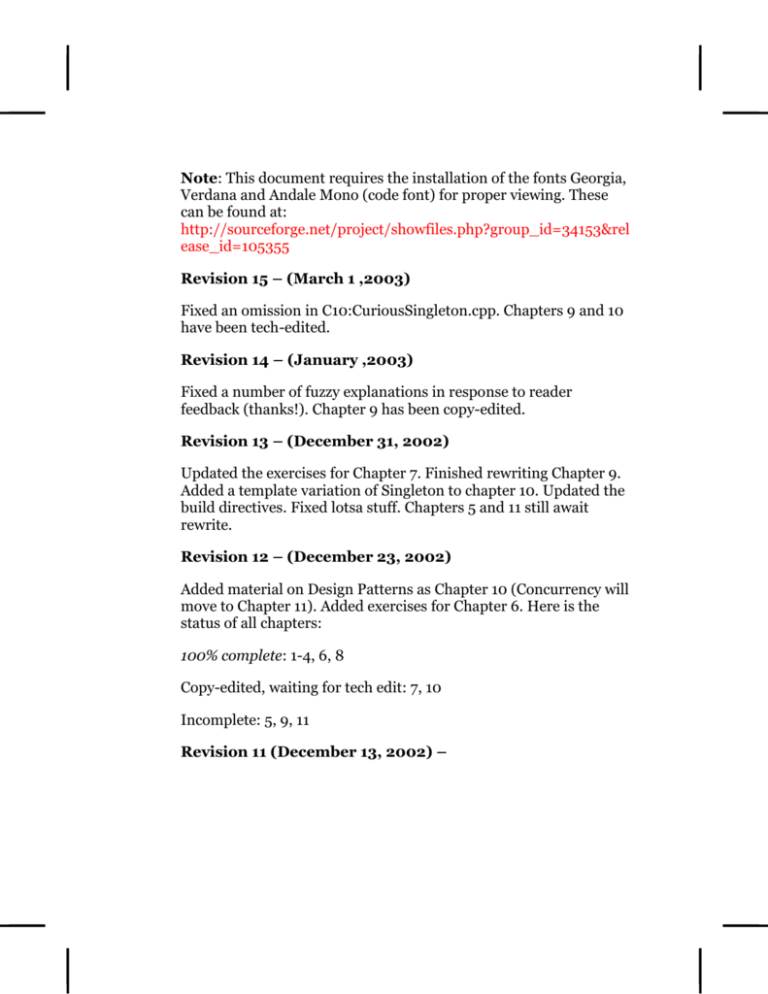
| Language | ||||
| Standard Library Headers | ||||
| Freestanding and hosted implementations | ||||
| Named requirements | ||||
| Language support library | ||||
| Concepts library(C++20) | ||||
| Diagnostics library | ||||
| Utilities library | ||||
| Strings library | ||||
| Containers library | ||||
| Iterators library | ||||
| Ranges library(C++20) | ||||
| Algorithms library | ||||
| Numerics library | ||||
| Localizations library | ||||
| Input/output library | ||||
| Filesystem library(C++17) | ||||
| Regular expressions library(C++11) | ||||
| Atomic operations library(C++11) | ||||
| Thread support library(C++11) | ||||
| Technical Specifications |
This information provides a quick reference for the IBM-supplied BPXBATCH program. BPXBATCH makes it easy for you to run shell scripts and z/OS® XL C/C executable files that reside in z/OS UNIX. An Ostream is an abstract base class for all output systems (streams, files, token lists.
Input/output library| I/O manipulators | ||||
| C-style I/O | ||||
| Buffers | ||||
(deprecated in C++98) | ||||
(C++20) | ||||
| Streams | ||||
| Abstractions | ||||
| File I/O | ||||
| String I/O | ||||
| Array I/O | ||||
(deprecated in C++98) | ||||
(deprecated in C++98) | ||||
(deprecated in C++98) | ||||
| Synchronized Output | ||||
(C++20) | ||||
| Types | ||||
| Error category interface | ||||
(C++11) | ||||
(C++11) |
 std::basic_ostream
std::basic_ostream| Global objects | ||||
| Member functions | ||||
(C++11) | ||||
| Formatted output | ||||
| Unformatted output | ||||
| Positioning | ||||
| Miscellaneous | ||||
(C++11) | ||||
| Member classes | ||||
| Non-member functions |
Defined in header <ostream> | ||
| (1) | ||
template<class CharT, class Traits> basic_ostream<CharT,Traits>& operator<<( basic_ostream<CharT,Traits>& os, | ||
template<class CharT, class Traits> basic_ostream<CharT,Traits>& operator<<( basic_ostream<CharT,Traits>& os, | ||
template<class Traits > basic_ostream<char,Traits>& operator<<( basic_ostream<char,Traits>& os, | ||
template<class Traits > basic_ostream<char,Traits>& operator<<( basic_ostream<char,Traits>& os, | ||
template<class Traits > basic_ostream<char,Traits>& operator<<( basic_ostream<char,Traits>& os, | ||
| (2) | ||
template<class CharT, class Traits > basic_ostream<CharT,Traits>& operator<<( basic_ostream<CharT,Traits>& os, | ||
template<class CharT, class Traits > basic_ostream<CharT,Traits>& operator<<( basic_ostream<CharT,Traits>& os, | ||
template<class Traits > basic_ostream<char,Traits>& operator<<( basic_ostream<char,Traits>& os, | ||
template<class Traits > basic_ostream<char,Traits>& operator<<( basic_ostream<char,Traits>& os, | ||
template<class Traits > basic_ostream<char,Traits>& operator<<( basic_ostream<char,Traits>& os, | ||
template<class Ostream, class T > Ostream&& operator<<( Ostream&& os, | (3) | (since C++11) |
deleted overloads for basic_ostream and UTF character/array | ||
| (4) | (since C++20) | |
template<class Traits > basic_ostream<char,Traits>& operator<<( basic_ostream<char,Traits>& os, | ||
template<class Traits > basic_ostream<char,Traits>& operator<<( basic_ostream<char,Traits>& os, | ||
template<class Traits > basic_ostream<char,Traits>& operator<<( basic_ostream<char,Traits>& os, | ||
template<class Traits > basic_ostream<char,Traits>& operator<<( basic_ostream<char,Traits>& os, | ||
template<class Traits > basic_ostream<wchar_t,Traits>& operator<<( basic_ostream<wchar_t,Traits>& os, | ||
template<class Traits > basic_ostream<wchar_t,Traits>& operator<<( basic_ostream<wchar_t,Traits>& os, | ||
template<class Traits > basic_ostream<wchar_t,Traits>& operator<<( basic_ostream<wchar_t,Traits>& os, | ||
template<class Traits > basic_ostream<char,Traits>& operator<<( basic_ostream<char,Traits>& os, | ||
template<class Traits > basic_ostream<char,Traits>& operator<<( basic_ostream<char,Traits>& os, | ||
template<class Traits > basic_ostream<char,Traits>& operator<<( basic_ostream<char,Traits>& os, | ||
template<class Traits > basic_ostream<char,Traits>& operator<<( basic_ostream<char,Traits>& os, | ||
template<class Traits > basic_ostream<wchar_t,Traits>& operator<<( basic_ostream<wchar_t,Traits>& os, | ||
template<class Traits > basic_ostream<wchar_t,Traits>& operator<<( basic_ostream<wchar_t,Traits>& os, | ||
template<class Traits > basic_ostream<wchar_t,Traits>& operator<<( basic_ostream<wchar_t,Traits>& os, |
C 2b 2b Ostream Dev Null Key
Inserts a character or a character string.
ch. If the type of the character is not CharT, it is first converted with os.widen(ch). Padding is determined as follows: if os.width()>1, then os.width()-1 copies of os.fill() are added to the output character to form the output character sequence.If (out.flags()&std::ios_base::adjustfield)std::ios_base::left, the fill characters are placed after the output character, otherwise before. After insertion, os.width(0) is called to cancel the effects of std::setw, if any.
C 2b 2b Ostream Dev Null Code
FormattedOutputFunction. After constructing and checking the sentry object, inserts successive characters from the character array whose first element is pointed to bys.- for the first and third overloads (where
CharTmatches the type ofch), exactlytraits::length(s)characters are inserted. - for the second overload, exactly std::char_traits<char>::length(s) characters are inserted.
- for the last two overloads, exactly traits::length(reinterpret_cast<constchar*>(s)) are inserted.
Before insertion, first, all characters are widened using os.widen(), then padding is determined as follows: if the number of characters to insert is less than os.width(), then enough copies of os.fill() are added to the character sequence to make its length equal os.width(). If (out.flags()&std::ios_base::adjustfield)std::ios_base::left, the fill characters are added at the end of the output sequence, otherwise they are added before the output sequence.After insertion, width(0) is called to cancel the effects of std::setw, if any.
s is a null pointer.Ostream is a class type publicly and unambiguously derived from std::ios_base.[edit]Parameters
| os | - | output stream to insert data to |
| ch | - | reference to a character to insert |
| s | - | pointer to a character string to insert |
C 2b 2b Ostream Dev Null Test
[edit]Return value
os[edit]Notes
C%2b%2b Ostream Dev Null
Before LWG#1203, code such as (std::ostringstream()<<1.2).str() does not compile.
C 2b 2b Ostream Dev Null Command
[edit]Example
Output:
[edit]Defect reports

The following behavior-changing defect reports were applied retroactively to previously published C++ standards.
| DR | Applied to | Behavior as published | Correct behavior |
|---|---|---|---|
| LWG 1203 | C++11 | overload for rvalue stream returned lvalue reference to the base class | returns rvalue reference to the derived class |
| LWG 2534 | C++11 | overload for rvalue stream was not constrained | constrained |
[edit]See also
| inserts formatted data (public member function)[edit] |
| widens characters (public member function of std::basic_ios<CharT,Traits>)[edit] |